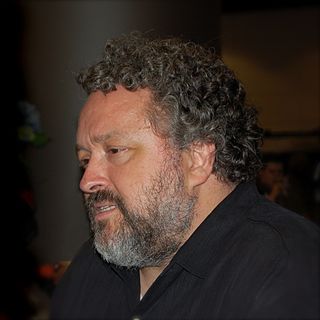A Quote by Charlie Munger
The ethical rule is from Samuel Johnson who believed that maintenance of easily removable ignorance by a responsible office holder was treacherous malfeasance in meeting moral obligation. The prudential rule is that underlying the old Warner & Swasey advertisement for machine tools: "The man who needs a new machine tool, and hasn't bought it, is already paying for it". The Warner & Swasey rule also applies, I believe, to thinking tools. If you don't have the right thinking tools, you, and the people you seek to help, are already suffering from your easily removable ignorance.
Quote Topics
Advertisement
Also
Believe
Believed
Bought
Easily
Ethical
He Man
Help
Holder
I Believe
Ignorance
Johnson
Machine
Maintenance
Malfeasance
Man
Meeting
Moral
Moral Obligation
Needs
New
Obligation
Office
Old
Paying
People
Responsible
Right
Rule
Seek
Suffering
Thinking
Tool
Tools
Treacherous
Underlying
Warner
Your
Related Quotes
Music is a tool. Lighting is a tool. Power point is a tool. Getting those things right is not the goal. God is the goal. Those are just tools. And we can real easily turn into worshippers of all the tools, rather than remembering that this is simply a tool to get the job done which is to help connect people with God and to help inspire people.
I feel like the beauty of this age of filmmaking is that there are more tools at your disposal, but it doesn’t mean that any of these new tools are automatically the right tools. And there are a lot of situations where we went very much old school and in fact used CG more to remove things than to add things.
I think it was Samuel Johnson who said, "There are two kinds of information in this world: that what you know and that what you know where to get." The tools help the latter, and that's what keeps us from going nuts. The sense of overload comes from the gap between that sudden jump in volume (of information) and the tools we have to make sense of it.
10 Rules for Being Human: Rule #1 - You will receive a body. Rule #2 - You will be presented with lessons. Rule #3 - There are no mistakes, only lessons. Rule #4 - The lesson is repeated until learned. Rule #5 - Learning does not end. Rule #6 - "There" is no better than "here". Rule #7 - Others are only mirrors of you. Rule #8 - What you make of your life is up to you. Rule #9 - Your answers lie inside of you. Rule #10 - You will forget all this at birth.
Tools may be animate as well as inanimate; for instance, a ship's captain uses a lifeless rudder, but a living man for watch; for a servant is, from the point of view of his craft, categorized as one of its tools. So any piece of property can be regarded as a tool enabling a man to live, and his property is an assemblage of such tools; a slave is a sort of living piece of property; and like any other servant is a tool in charge of other tools.
Science can give us only the tools in the box, these mechanical miracles that it has already given us. But of what use to us are miraculous tools until we have mastered the humane, cultural use of them? We do not want to live in a world where the machine has mastered the man; we want to live in a world where man has mastered the machine.



































